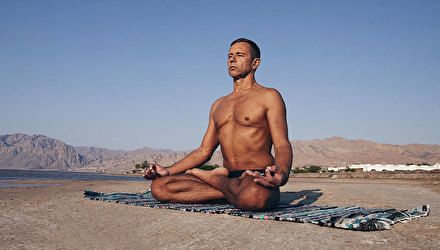Ayurveda considers the universe as a single living organism, in which an infinite variety of forms is in unity. This unity manifests itself in the fundamental basis of the universe as pure Being, Absolute existence, Creative Mind. Every particle in the universe has its own rhythm. The diversity of all kinds of vibrations is in deep harmony with the single pulse of the Universe. This can be compared to an orchestra, in which a large number of musical instruments of the most bizarre forms and sounds are tuned in the same key and are subject to the movement of the baton of the Single Conductor. And if a musician begins to get out of tune, he is asked to either tune the instrument to universal harmony, or leave the orchestra.
Ayurveda states that disease occurs when there is no harmony between a person and the Whole. Violating the natural rhythms of life, a person enters into dissonance with the Natural Law, and this activates destructive processes in the body that cause disease and premature aging. Therefore, the basis for maintaining ideal health is the establishment of life in harmony with the rhythms of Nature. When this happens, the body itself includes powerful processes of recovery and rejuvenation.
Dinacharya or daily routine is the basis of perfect health.

The human body naturally lives by a biological clock that is controlled by the sun. Its energy penetrates our body and controls it, whether we see it or not. Half an hour before sunrise, the sun sends out special rays that give subtle energy to the human body. This was confirmed by Japanese scientists who recorded that twenty minutes before sunrise, the entire biochemistry of the body changes dramatically. Even blood changes its composition. Ayurveda, knowing this, says that it is during this period that our body tunes in to active daily activities. If this time is missed, then the body does not switch and operates in a weakened night mode, at half strength. According to the Dinacharya, you need to wake up between four and six in the morning. This is a time of happiness and optimism. And in nature, Vata dosha prevails, which has the qualities of lightness, movement. And if a person wakes up at this time, his day is filled with vitality, joy and enthusiasm.
From six to ten, Kapha dosha dominates in nature. Its qualities: slowness, heaviness. If a person wakes up after six, then the whole day he will feel lethargy, loss of vitality, and a decrease in creative activity. Getting up after seven fills the day with stress and chronic underachievement. As a result, all diseases associated with stress appear, especially indigestion and the cardiovascular system, and concentration decreases. From eight to nine - the time of premature aging. Vital energy falls, it is difficult for a person to achieve his goals. Rising from nine to ten causes chronic illness, depression, loss of meaning in life.
Getting up early is also important because Vata dosha, which is active between four and six, is responsible for removing toxins from the body. At this time, ama (toxins) shift from their places, moving into the intestines and bladder, and out to the surface of the tongue and skin. And if at this time, immediately after sleep, you go to the toilet, clean your tongue with a special scraper or a silver spoon, take a shower, most of the ama will leave the body. If we get up after six, during the period of activation of Kapha dosha, the movement of vata slows down and the toxins partially return to their places. And if we wake up regularly during this period, ama tends to accumulate.
But the most important value of an early rise is a predisposition to spiritual life. This is the best time for spiritual practices.
During the period of active Kapha dosha (from six to ten), it is good to do your usual activities. Kapha is slow in nature, but solid and stable. This time is ideal for learning: everything that is studied during this period is remembered for a long time.
Since the fire of digestion is weak at this time, a light breakfast is recommended. People with a Kapha physiology are best off skipping breakfast as eating in the morning will increase Kapha in the body.
From ten in the morning until two in the afternoon is Pitta time. Noon is the best time for the main meal. When the sun is at its zenith, the fire of digestion is at its strongest. At this time, you can eat as much as you want. If the main meal always falls at this time, Agni will have good strength. After lunch, it is recommended to take a short walk, but in no case do not sleep. Ayurveda warns that afternoon naps are the source of tamas (ignorance) and are only permissible for children or very debilitated people.
From two in the afternoon to six in the evening, Vata dosha appears again in nature. This is activity time. And from six to ten in the evening - Kapha period. This is a very specific time, as there is a transition from daytime to nighttime rhythms. The rhythms of nature slow down, the day comes to an end. It is good to turn off the mind from daily worries, to practice the techniques of spiritual development. Dinner should be light so that the food is completely digested before going to bed. You can drink a cup of hot milk with a little ginger, cardamom and turmeric to help you fall asleep. According to Ayurveda, milk drunk in the evening nourishes shukra dhata, the most refined tissue of the body: reproductive and produces ojas, the vital substance. A light massage of the feet with sesame oil prepares the body for a restful and deep sleep.
Ayurveda recommends going to bed before ten, while Kapha is in nature. From nine to twelve at night, the nervous system rests. Every hour of sleep before midnight is equivalent to two in its restorative power. Therefore, six hours of sleep is enough to give the body a good rest.
After ten o'clock in the evening, the period of Pita dosha begins, Agni ignites again, and if we sleep, its energy cleanses the body, burning toxins. If we are active, then at this time we feel a surge of energy, there is an appetite, a desire to be creative, to communicate with friends. Valuable energy given to us by nature to cleanse the body is wasted on other purposes. As a result, ama accumulates and, as a result, arthritis develops, headaches appear, vital energy decreases, although many mistakenly consider this to be a normal state of health after thirty to thirty-five years. Another common misconception is that very often people call themselves "owls", but, in fact, this is a bad habit to misuse the biological rhythms of the body.

The question may arise: if the sun, for example, rises after eight in the morning in winter, does this mean that the entire schedule is shifted two hours later? But in fact, this does not mean the obvious dawn that we see on the horizon, but the position of the sun at which it begins to actively act on the point on the Earth's surface where we are. In the far north, the sun does not rise at all for half a year, but this does not mean that people should go into hibernation. It doesn't matter if the sun rotates vertically around where we are or obliquely, but since the Earth is round, the full rotation of the sun will be 360 degrees, 0 degrees at midnight, and 90 degrees at six o'clock in the morning. It is at this time that the solar force begins its active effect on our body. But since in winter the angle of the sun's rise is very gentle, it itself appears a little later.
Those who get up early know that nature is always calm until six in the morning, and right after six, a special energy appears, a light breeze, and the Earth goes from a peaceful state to a cheerful one. It always happens at the same time in winter and summer. But the time on our clock does not always correspond to the solar, natural. In Soviet times, a law on maternity time was adopted - on the territory of the former USSR there is an offset of the actual time in relation to the solar one by one hour. In addition, there is a transition to summer and winter time. You should also be aware that for convenience, time zones have been made very wide, which also entails a deviation in time in some areas. Despite this, determining solar time is very simple: you need to call the astronomical observatory and ask the specialists when the time of the midday sun is in the city or when the sun is at its highest point. This will correspond to 12 hours of solar time. Having determined this, you can quickly calculate your daily routine.
It may seem that it is very difficult to follow the rules of the dynacharya in modern life, since the whole society is subject to other temporary rhythms. But the main thing is a sincere desire and intention. In the beginning, in order to establish life in harmony with Nature, it will take some effort to overcome the energy created by our unbalanced life. But soon the rhythm will create its own power. The Ayurvedic regimen is not a rigid discipline, but rather something that should reveal itself to us through the natural movement of our own being.
Author: Vadim Ostras, Elena Ostras.








